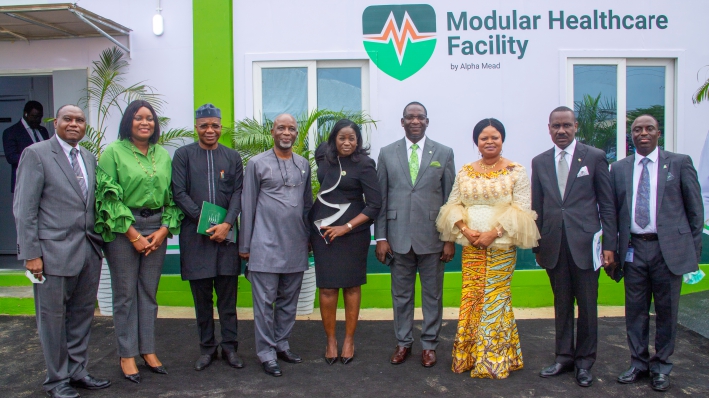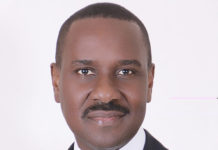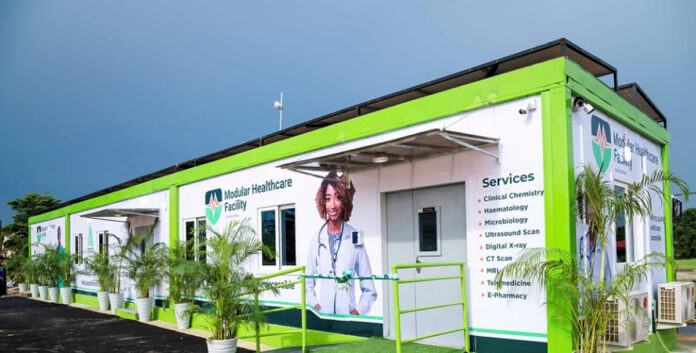When the 2022 budget (Appropriation Bill) was signed on December 31, 2021, Nigerians saw the positives, chiefly for the fact that the era of unapproved budgets dominating news headlines at the start of a new year appeared behind us. The optimism that accompanied the gesture was rapidly eroded by the realization that one sector that required significant investment, healthcare, received a paltry N724.6bn allocation, amounting to just over 4 percent of the national budget.
The healthcare sector has been in dire need of concerted intervention for decades now and a disparity exists between investment and actual needs. Certainly not to the level desired by Nigerians. On a near-daily basis, we hear stories or read reports on the sheer number of avoidable deaths emanating from the rot in our healthcare sector. The gross lack of sufficient investment in the healthcare sector, coupled with a shortage of medical personnel occasioned by brain drain, has earned Nigeria the ignominy of being one of the countries with the lowest healthcare worker per population ratio in Africa. That figure stands at 1:5,000 as against the World Health Organisation’s recommended 1:600 ratio.
Exacerbating the situation is the huge revenue loss to medical tourism. Medical tourism, simply put, is when a person leaves the shores of the country to receive medical care. A 2016 report by PricewaterhouseCoopers states that Nigerians spend over $1bn on medical tourism annually, and it is safe to assume that those numbers will be much greater today. Substantial funds that could have been spent in the country to improve the economy are taken overseas, sometimes to less developed countries like us, because of the inadequacy of our healthcare system.
Beyond the loss, medical tourism aggravates the burden of the populace as families sell assets and are even plunged into debt in their quest to raise funds to cover the cost of providing quality medical care to a loved one outside of the country. It is not a sustainable model, and unquestionably, one that requires urgent attention if the nation is to actualize its potential to be a leading force on a global scale.
Despite the situation, the government has not ceased to invest in the sector, with the uptick in primary healthcare centres testaments of the fact, but the problem at hand transcends primary health and like other growth sectors in the country, necessitates significant investment from stakeholders in the private sector.
One such company that has heeded this clarion call is Alpha Mead Healthcare and Management Services Limited (AMHS), the medicare subsidiary of total real estate & healthcare solutions company, Alpha Mead Group. Established in 2016 with a vision to improve the quality of healthcare in Africa, AMHS has quietly but steadily set about this task to great effect. With proficiency in delivering an array of services including healthcare services administration and operations management, medical equipment sourcing and commissioning to name but a few, AMHS is deploying its unique expertise to the private and public healthcare sectors.

The firm operates the private-public partnership (PPP) model at facilities such as the Gbagada General Hospital and the Lagos State University Teaching Hospital (LUTH) in a joint venture of her subsidiary, Medivation Health Limited whereby managing the radiology department of the foremost tertiary healthcare institution and provides cutting-edge Computed Tomography (CT), Magnetic Resonance Imaging (MRI) Ultrasonography, Bone densitometry, Digital X-ray, and Mammography equipment and services. The firm also has some Joint Venture partnerships with private stakeholders both in the health insurance and hospitals industry where it deploys its expertise in bespoke arrangements.
True to its promise of making quality healthcare accessible, the firm went a step further by developing its Modular Healthcare Facility in June 2021. The Modular Healthcare Facility (MHF) is an innovation designed to liberalize diagnostic services and treatment for everyone, improve turn-around time between disease detection and treatment.
The MHF is a self-sufficient prefabricated, modularized diagnostic and clinic facility conceptualized to be low cost, mobility enhanced and equipped with Radiology Information System Picture Archiving Communication System (RISPACS), enterprise Electronic Medical Records (EMR) and telehealth infrastructure for real-time reporting of investigations and remote consultation. To address the issue of access to quality medical personnel, the facility is equipped with telemedicine functions, meaning that a patient can conduct the required tests at the facility and consult with a doctor in any part of the world.
Vice President, Prof. Yemi Osinbajo, through the Senior Special Assistant to the President on Sustainable Development Goals (SDGs), Princess Adejoke Orelope-Adefulire, said the new medical facility, which is the first in Africa, would support the government’s effort towards transforming medical diagnostics in the country. She said: “Alpha Mead Healthcare Management Services Ltd and its global healthcare facilities have the potential to reduce barriers to healthcare access in Nigeria.” The FG was not alone in its commendation of the facility, as the Lagos State Commissioner for Health, Prof. Akin Abayomi, in a tour of the facility noted: “It is innovative and has a robust array of facilities within it and can be used in specific locations. I am happy to see it is an indigenous product and has all the required technical backdrops. It is also energy-conscious and mobile.”
More innovations like this are required to transform the healthcare sector, and the Managing Director of the company, Mr Kunle Omidiora, maintained that the organization is open to partnering with stakeholders across the value chain to deploy the technology across the country, even the hinterlands.




























